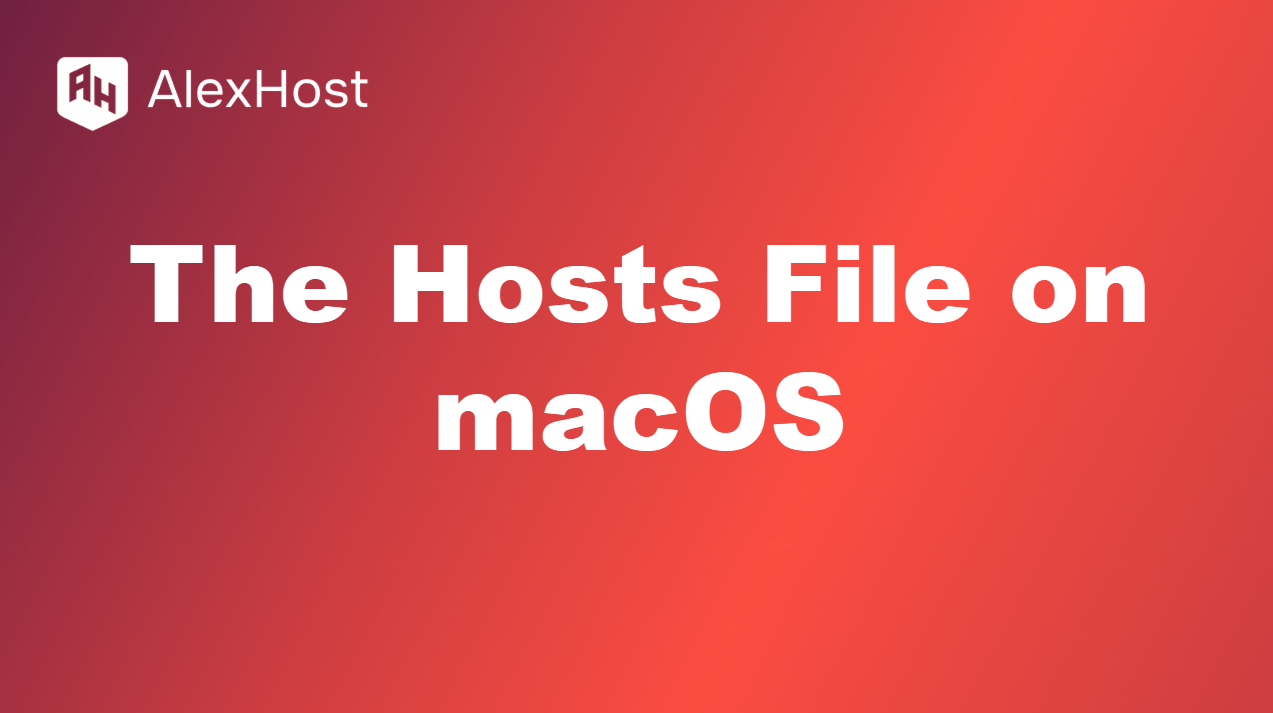Master the macOS Hosts File: Take Control of Your Site’s DNS Why tweak the hosts file for AlexHost sites? The macOS hosts file is your local DNS cheat code, letting you map domains to IPs without touching external servers. It’s a must for developers testing sites on AlexHost’s VPS or for redirecting traffic to dodge […]
How to Access and Secure Your WordPress Admin Panel The WordPress admin panel—often called the WordPress dashboard—is the central hub where you manage your entire website. From publishing content and customizing themes to installing plugins and managing users, every important task happens here. This guide explains how to log into your WordPress admin panel, troubleshoot […]
Host Your SMTP Server on AlexHost: Power Your Email Delivery Why run an SMTP server on AlexHost? Emails are the lifeblood of communication, and an SMTP server ensures they reach their destination reliably. AlexHost’s dedicated servers and VPS, with NVMe storage, full root access, and DDoS protection, offer a robust platform for hosting your own […]
Setting up an email client allows you to manage your email accounts efficiently from your desktop or mobile device. Whether you’re using Microsoft Outlook, Mozilla Thunderbird, Apple Mail, or any other email client, the process is generally straightforward. This guide will walk you through the essential steps to set up any email client, ensuring you […]
The Extra Packages for Enterprise Linux (EPEL) repository provides additional high-quality packages for Linux distributions like CentOS, RHEL, and Fedora. Enabling the EPEL repository is essential for users who want to access software that isn’t included in the default repositories. This article will guide you through the steps to enable the EPEL repository on your […]
A mail server is a system that handles the sending, receiving, and storage of email messages. These servers are essential components of the email infrastructure, ensuring that emails reach their intended recipients and are securely stored until accessed. Whether you’re using a personal email account or managing a corporate email system, mail servers play a […]
Master the Linux Hosts File: Your Local DNS Wizard Why tweak the hosts file? The hosts file is your Linux VPS‘s secret weapon for mapping domains to IPs, bypassing external DNS for quick fixes or clever tricks. Want to test a site locally, block time-wasters like social media, or dodge DNS glitches? This plain-text file […]
SSH (Secure Shell) keys are an essential part of managing cloud servers securely. They offer a more secure and convenient method for authenticating users compared to traditional password-based logins. By using SSH keys, you can establish secure, encrypted connections to your cloud servers, ensuring that only authorized users can gain access. In this article, we’ll […]
A static IP address is a fixed address assigned to a computer or device on a network. Unlike dynamic IP addresses, which change over time, a static IP remains constant, making it useful for certain network configurations like hosting servers, remote access, or sharing resources within a network. In this article, we will walk through […]
Arch Linux is a popular Linux distribution known for its simplicity, flexibility, and customization options. Unlike many other distributions, Arch provides a minimal base that you can build upon according to your specific needs, making it a favorite among experienced Linux users. This article will explain what Arch Linux is and provide a step-by-step guide […]
















